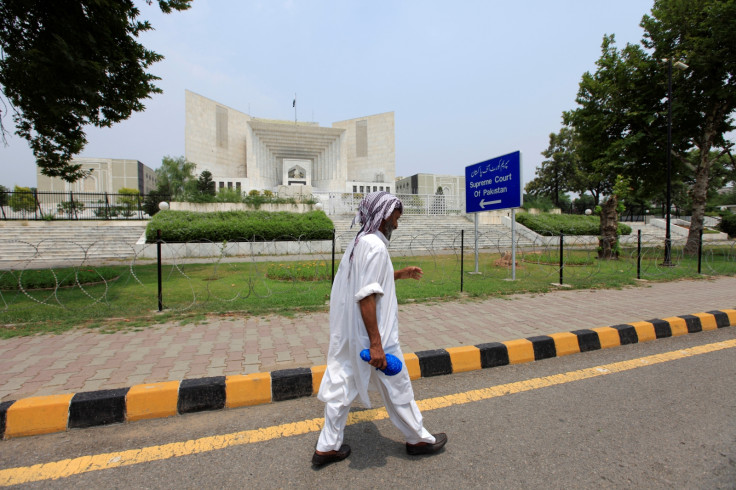Pakistan Supreme Court to rule on alleged violation of rights of terror convicts
Army courts are accused of forced confession and denial of basic rights.

Pakistan's Supreme Court could soon start scrutinising and rule on the new military tribunals' alleged violation of constitutional rights of 12 people who were convicted by the courts. The secret courts were set up in 2015 to try terrorism-related cases after the Peshawar massacre in December 2014 killed 134 students at an army-run school.
According to the tribunals' press office, they have convicted 81 people, of whom 77 were given the death sentence, while no one has been acquitted yet.
However, 27 people who were tried in the military courts have appealed to the civilian court for a fresh trial. They have alleged that the military courts extracted confessions from them during their trial and deprived them of their right to have a lawyer. According to Reuters and local media reports, the convicts were also denied access to evidence used against them.
The news agency reported that it had contacted the lawyers and relatives of 10 of the convicts, who have all spoken out about alleged abuse by the military courts, including some breach of legal proceedings. Reuters said it was unable to verify any of the accusations independently, while the military's public relations office declined to comment.
One of the convicts, Sabir Shah, was sentenced to death by a military court. His family was not informed and they got to know through a press release only five months later. Shah was already on trial for a murder in a civilian court and had vanished from Lahore's central jail in April 2015. According to his lawyer, despite filing an appeal with the Lahore High Court, he was unable to view the evidence against which Shah was awarded capital punishment.
"All of these things will only become clear to us when we are provided the [military] judgment," said Malik Adeel, who had filed an appeal with the Lahore High Court.
The military issued a statement saying Shah had confessed to his involvement in the murder of a Lahore-based lawyer.
The lawyers defending the convicts have also said that they were denied permission to meet their clients during the army court trials. It has been reported that 78 out of 81 accused were convicted on the basis of their confessions.
The lawmakers who authorised the military courts have said the courts had to be established as civil court judges were afraid of handling the cases for fear of retaliation by militants.
But a senior official, speaking on the condition of anonymity, told Reuters: "It was endorsed by parliament. If the normal courts could do the job, why would the military want to do it?"
Allowing basic legal rights to the convicts has long been debated in Pakistan, with the country's chief justice raising the question at a recent hearing in the Supreme Court. "Terrorists are challenging the constitution and the law of the land, but their counsel are citing fundamental rights in their defence," said Anwar Zaheer Jamali.
Human rights groups have condemned the operation of military courts. Human rights lawyers have also accused these courts of forcing convicts to affix their thumbprints on blank paper and later turning it out as confessions.
Copyright Thomson Reuters. All rights reserved.






